Tattooing, often regarded as a timeless art form, embodies stories, passions, and journeys etched into the skin. In this exclusive interview, we delve into the remarkable journey of Rodrigo Rodriguez, an ink master who has spent a quarter of a century honing their craft.
From humble beginnings experimenting with homemade machines to becoming a seasoned tattoo artist, Rodrigo's story is one of dedication, resilience, and artistic evolution. Against the backdrop of Uruguay's tattoo scene, we uncover the transformative power of tattooing as it emerged from the shadows to embrace mainstream acceptance.
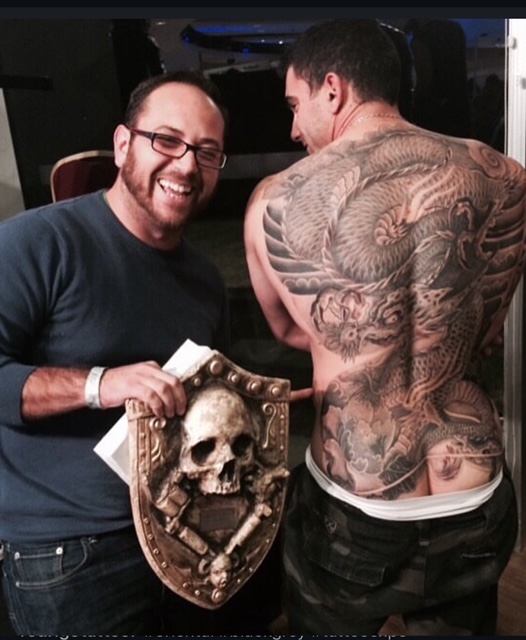
You've been in the tattoo scene for 25 years! Tell us, how did it all begin for you? What did you do before tattooing?
- It all started with friends who wanted me to tattoo them since I was the best drawer of the group, but without any experience or knowledge, we built a homemade machine. At 15 years old, unable to find information about tattooing, my mother, who was cultured, explained to me the importance of asepsis, such as using sterile field gloves and barriers for cross-contamination.
So, before even starting to tattoo, I began to study theoretically and then practice health procedures. And that's how I started tattooing my first design, a rose, which remains unchanged to this day, 25 years later! The challenges were huge! I kept a notebook where I made notes of each step, tracking progress and learning from healing observations of my friends.
Surely, there were many challenges along the way during those years. How did you deal with them? Did you have mentors?
- Unfortunately, I didn't have mentors; I was always self-taught!
Tell us about the tattoo scene in Uruguay. When you started, what did the tattoo industry look like in your country? And how does it look now?
- The tattoo scene in Uruguay was very underground and stigmatized when I started. However, I witnessed positive changes over the years, particularly around 2013/2014, when tattooing became more socially accepted across all statuses.
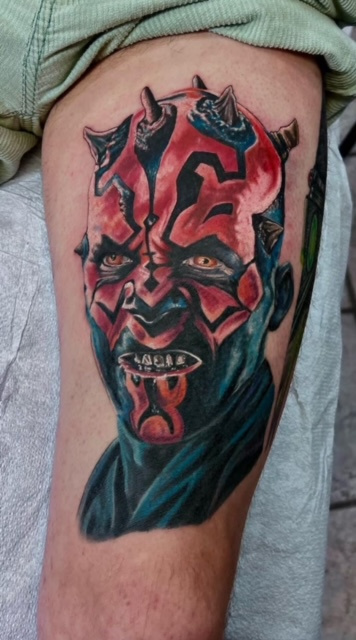
Is tattooing for you art, work, or something else?
- For me, tattooing is undoubtedly an art, but beyond that, it is a lifestyle! It's a holistic process involving the mind, soul, and body, leaving a part of myself in every tattoo I create.
Over such a long career, you've worked in many styles. Tell us, which ones do you like the most and why? Which one is the most important for you?
- Throughout my career, I have explored various styles, but my favorites are color realism, gray realism, Japanese, and comics. However, the most important style for me is realism.
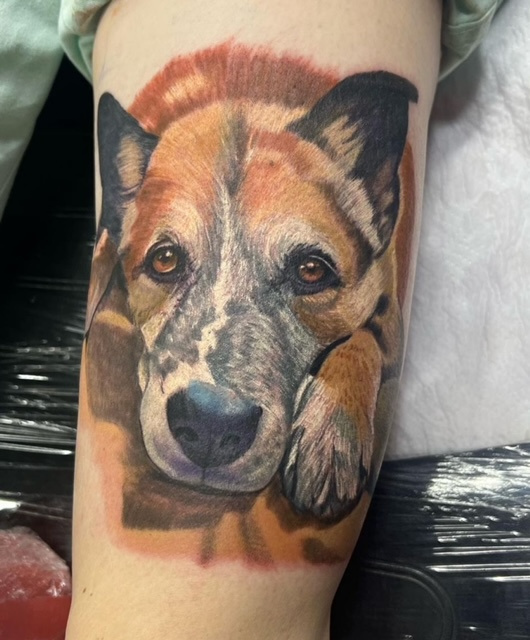
What are the unique features of your work that you personally highlight?
- I take great care in the time and detail I dedicate to each piece, continuously striving to perfect my technique and improve my craft.
Which themes do you prefer?
- I prefer themes that capture the essence of loved ones, whether it's a person or an animal.
Besides tattooing, you paint a lot on canvas. Do you have a professional art education? And how necessary do you think it is for a modern tattoo artist?
- In addition to tattooing, I paint in acrylic, pastels, and watercolor. I don't have a professional education; my skills come from observation and capturing ideas. However, I believe it's beneficial for modern tattoo artists to continue drawing and painting to refine their skills and explore new techniques.
Tell us about your studio FÉNIX. What is this project about? Perhaps there are interesting stories associated with it?
- My FÉNIX studio started in Minas, my hometown, facing challenges with renting space. Eventually, I settled in Maldonado, where I faced similar hurdles. However, my relentless pursuit led me to a modest, small space where it all began 18 years ago.
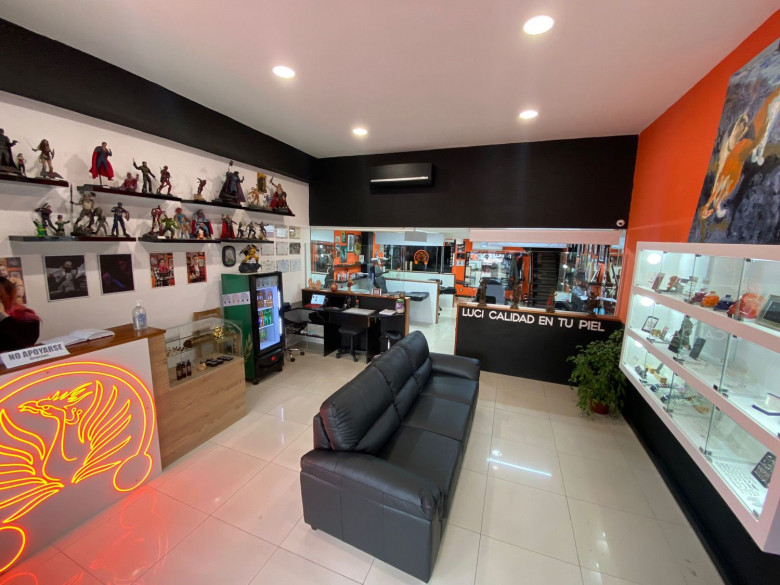
Do you attend tattoo conventions? Tell us about your experience and results.
- I haven't attended conventions lately due to spinal surgery, but in the past, I've won prizes and even served as a jury member, which was a rewarding experience.
Do you travel a lot? Where have you been? And do you have a favorite place on the planet?
- I travel extensively, tattooing in Argentina, Brazil, and the US. At the moment, my favorite place is my humble studio, but I cherish all the places I've been.
What is the most important thing for you in the career of a tattoo artist? What goals do you set for yourself? Can you share your creative plans for the near future?
- Continuous learning is crucial in a tattoo artist's career. My goals include expanding my brand nationally and internationally, and in the near future, I plan to travel to Europe and the US, participating in international conventions and collaborating with artists.
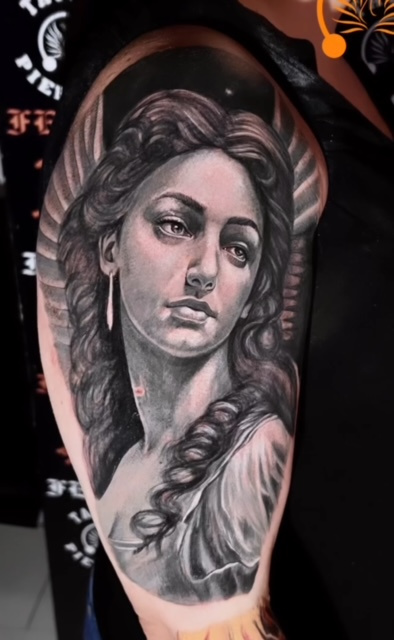
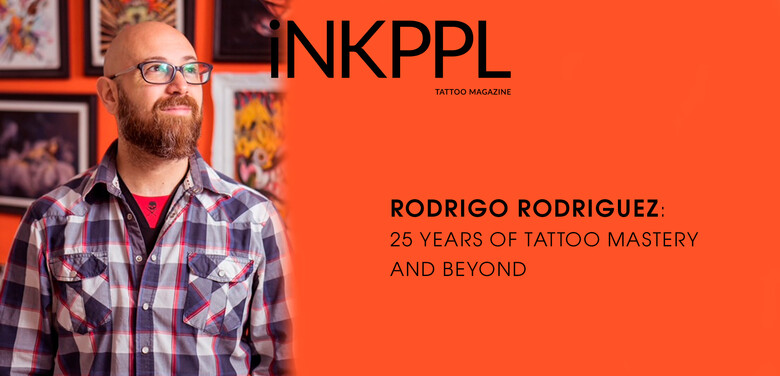









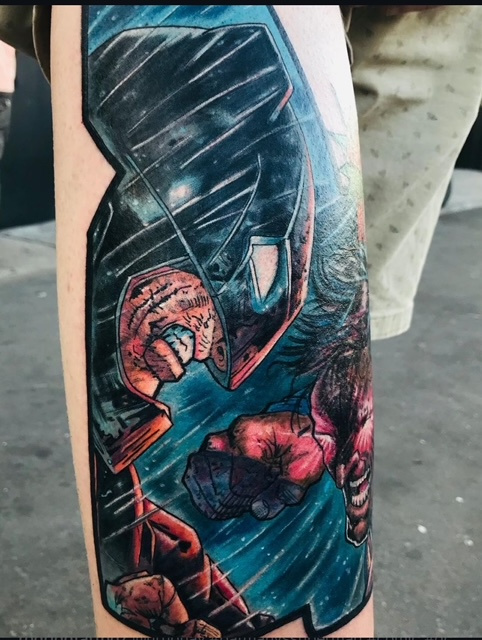
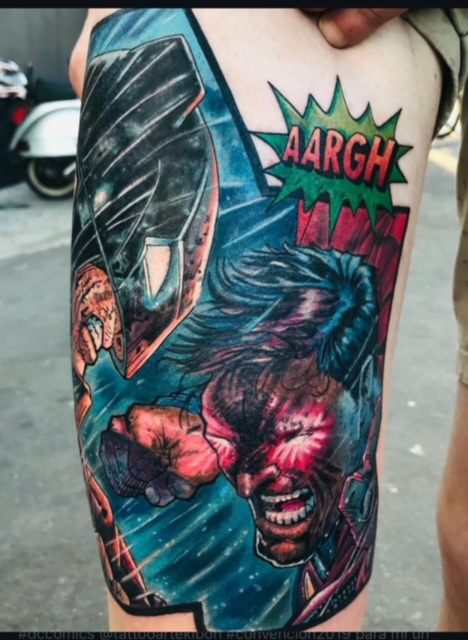
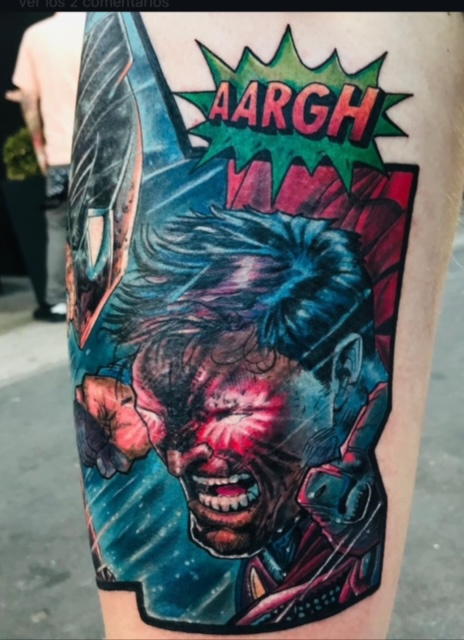
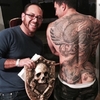
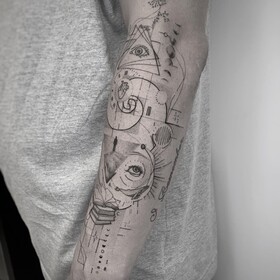
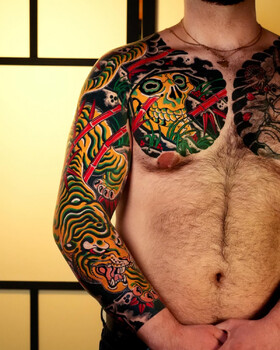
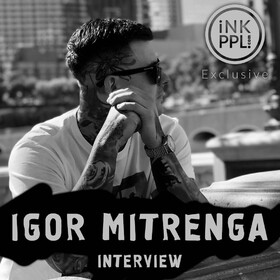
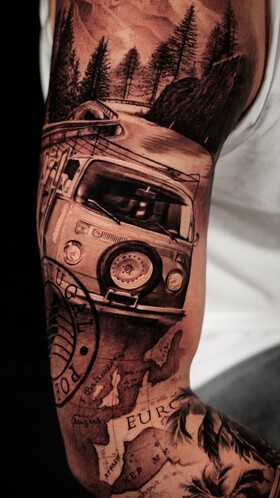
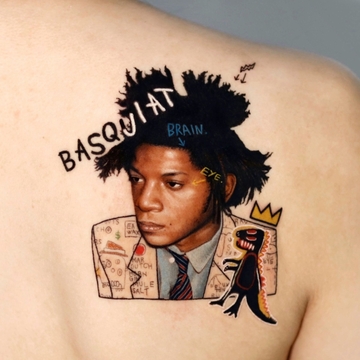
Comments (3)